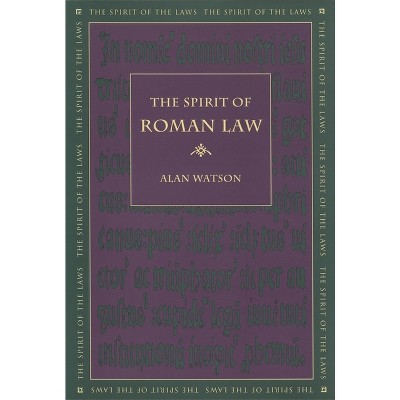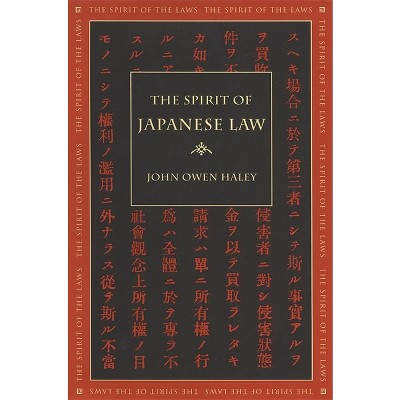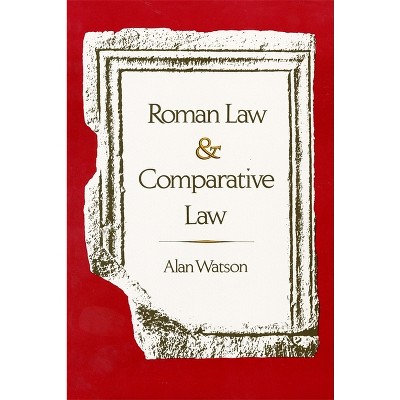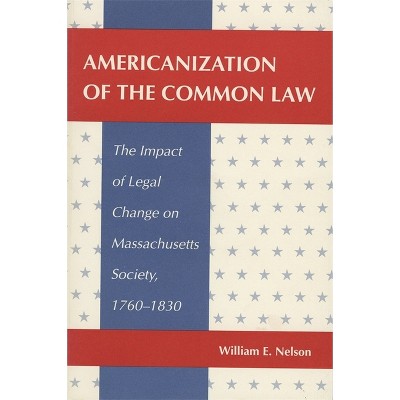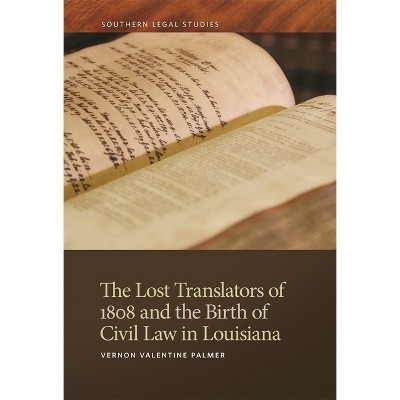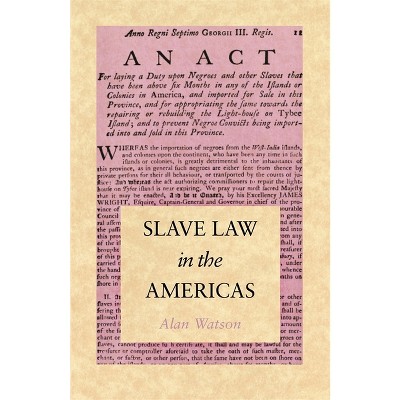The Spirit of Traditional Chinese Law - (Spirit of the Laws) by Geoffrey MacCormack

$50.99 when purchased online
Target Online store #3991
About this item
Highlights
- By the end of the eighth century A.D., imperial China had established a system of administrative and penal law, the main institutions of which lasted until the collapse of the Ch'ing dynasty in 1911.
- About the Author: Geoffrey MacCormack is a professor of jurisprudence at the University of Aberdeen.
- 280 Pages
- History, Asia
- Series Name: Spirit of the Laws
Description
About the Book
Throughout his study, MacCormack distinguishes between "official," or penal and administrative, law, which emanated from the emperor to his officials, and "unofficial," or customary, law, which developed in certain localities or among associations of merchants and traders.Book Synopsis
By the end of the eighth century A.D., imperial China had established a system of administrative and penal law, the main institutions of which lasted until the collapse of the Ch'ing dynasty in 1911. The Spirit of Traditional Chinese Law studies the views held throughout the centuries by the educated elite on the role of law in government, the relationship between law and morality, and the purpose of punishment.
Geoffrey MacCormack's introduction offers a brief history of legal development in China, describes the principal contributions to the law of the Confucian and Legalist schools, and identifies several other attributes that might be said to constitute the "spirit" of the law. Subsequent chapters consider these attributes, which include conservatism, symbolism, the value attached to human life, the technical construction of the codes, the rationality of the legal process, and the purposes of punishment. A study of the "spirit" of the law in imperial China is particularly appropriate, says MacCormack, for a number of laws in the penal codes on family relationships, property ownership, and commercial transactions were probably never meant to be enforced. Rather, such laws were more symbolic and expressed an ideal toward which people should strive. In many cases even the laws that were enforced, such as those directed at the suppression of theft or killing, were also regarded as an emphatic expression of the right way to behave. Throughout his study, MacCormack distinguishes between "official," or penal and administrative, law, which emanated from the emperor to his officials, and "unofficial," or customary, law, which developed in certain localities or among associations of merchants and traders. In addition, MacCormack pays particular attention to the law's emphasis on the hierarchical ordering of relationships between individuals such as ruler and minister, ruler and subject, parent and child, and husband and wife. He also seeks to explain why, over nearly thirteen centuries, there was little change in the main moral and legal prescriptions, despite enormous social and economic changes.From the Back Cover
By the end of the eighth century A.D. imperial China had established a system of administrative and penal law, the main institutions of which lasted until the collapse of the Ch'ing dynasty in 1911. The Spirit of Traditional Chinese Law studies the views held throughout the centuries by the educated elite on the role of law in government, the relationship between law and morality, and the purpose of punishment. A study of the spirit of the law in imperial China is particularly appropriate, says MacCormack, for a number of laws in the penal codes on family relationships, property ownership, and commercial transactions were probably never meant to be enforced. Rather, such laws were more symbolic and expressed an ideal toward which people should strive. In many cases even the laws that were enforced, such as those directed at the suppression of theft or killing, were also regarded as an emphatic expression of the right way to behave. Throughout his study, MacCormack distinguishes between "official", or penal and administrative law, which emanated from the emperor to his officials, and "unofficial", or customary law, which developed in certain localities or among associations of merchants and traders. In addition, MacCormack pays particular attention to the laws' emphasis on the hierarchical ordering of relationships between individuals such as ruler and minister, ruler and subject, parent and child, and husband and wife. He also seeks to explain why, over nearly thirteen centuries, there was little change in the main moral and legal prescriptions, despite enormous social and economic changes.About the Author
Geoffrey MacCormack is a professor of jurisprudence at the University of Aberdeen. He is the author of "Traditional Chinese Penal Law."Dimensions (Overall): 9.35 Inches (H) x 6.36 Inches (W) x .98 Inches (D)
Weight: 1.4 Pounds
Suggested Age: 22 Years and Up
Number of Pages: 280
Genre: History
Sub-Genre: Asia
Series Title: Spirit of the Laws
Publisher: University of Georgia Press
Theme: China
Format: Hardcover
Author: Geoffrey MacCormack
Language: English
Street Date: February 1, 1996
TCIN: 1005906662
UPC: 9780820317229
Item Number (DPCI): 247-49-2247
Origin: Made in the USA or Imported
Shipping details
Estimated ship dimensions: 0.98 inches length x 6.36 inches width x 9.35 inches height
Estimated ship weight: 1.4 pounds
We regret that this item cannot be shipped to PO Boxes.
This item cannot be shipped to the following locations: American Samoa (see also separate entry under AS), Guam (see also separate entry under GU), Northern Mariana Islands, Puerto Rico (see also separate entry under PR), United States Minor Outlying Islands, Virgin Islands, U.S., APO/FPO
Return details
This item can be returned to any Target store or Target.com.
This item must be returned within 90 days of the date it was purchased in store, shipped, delivered by a Shipt shopper, or made ready for pickup.
See the return policy for complete information.






